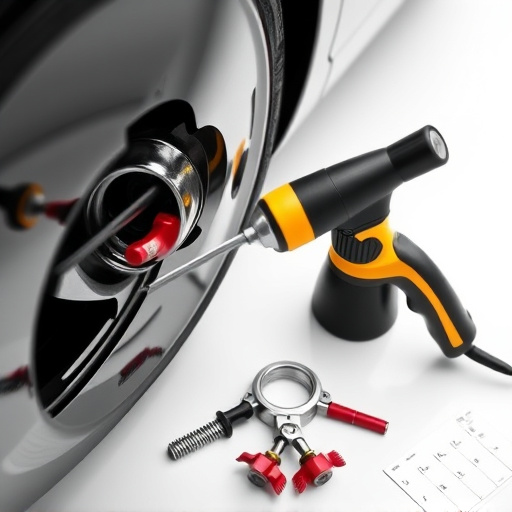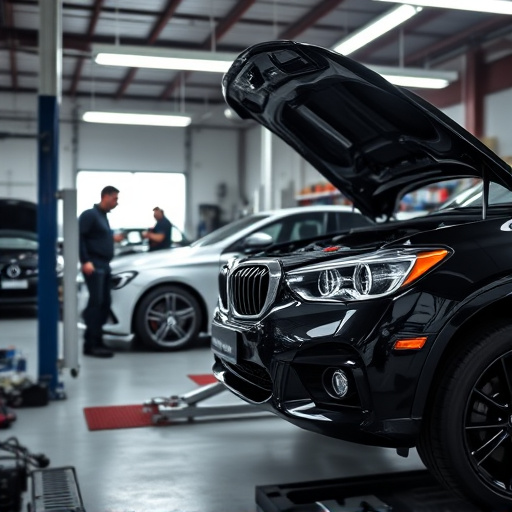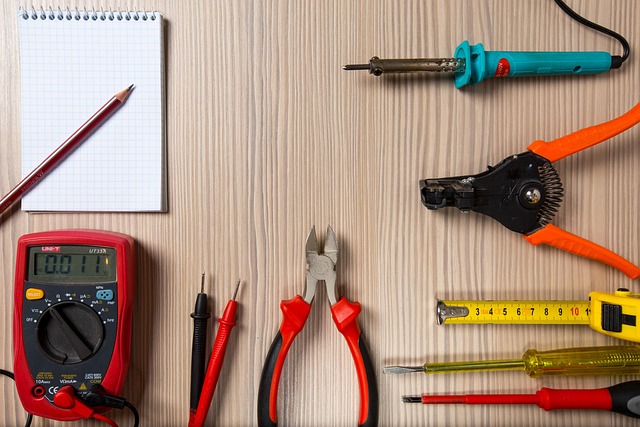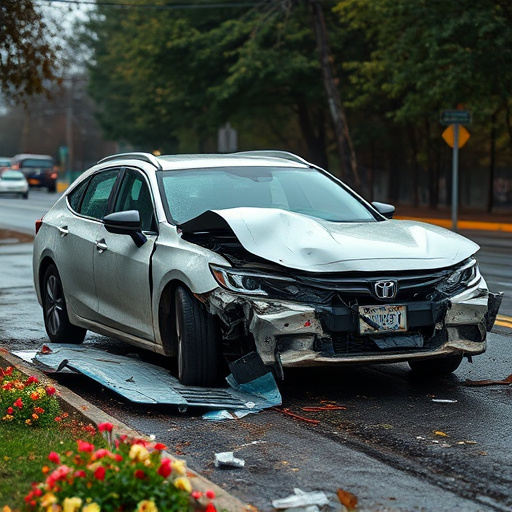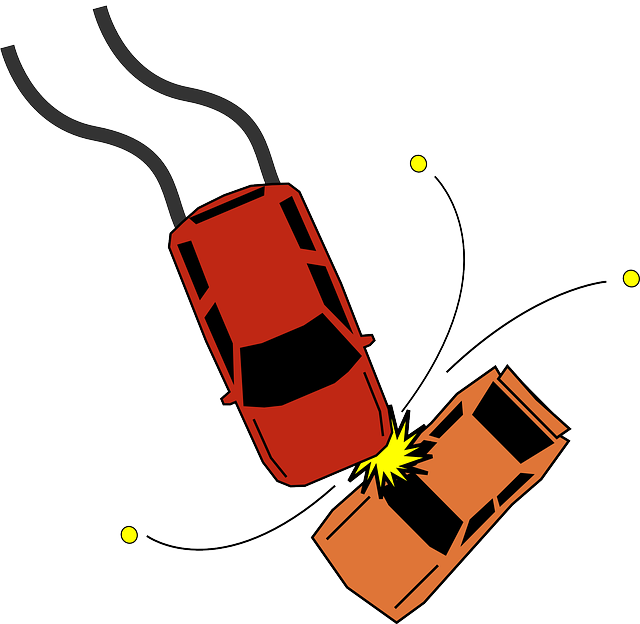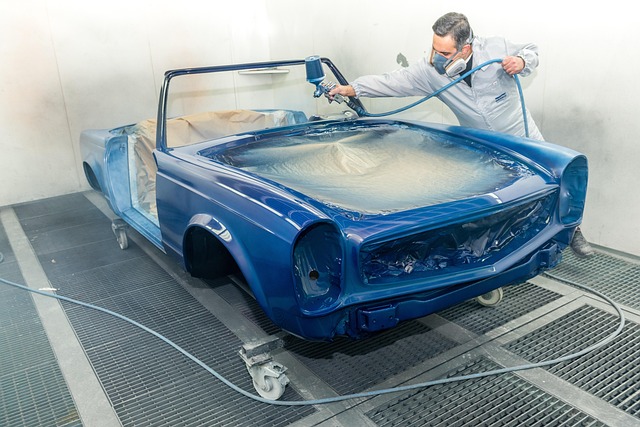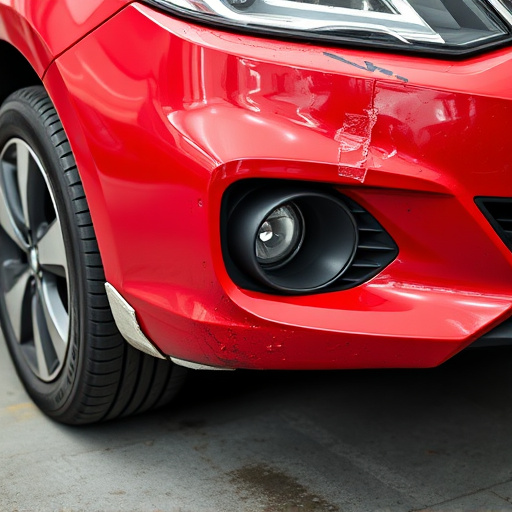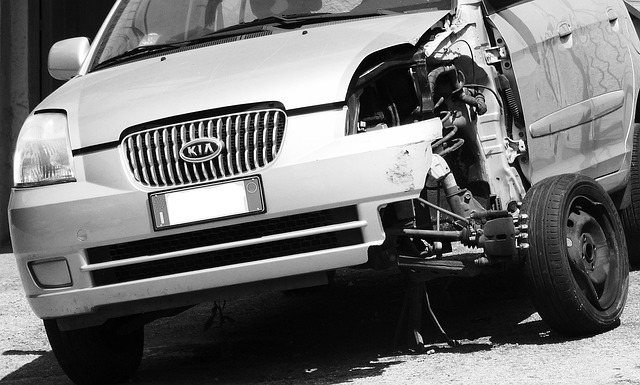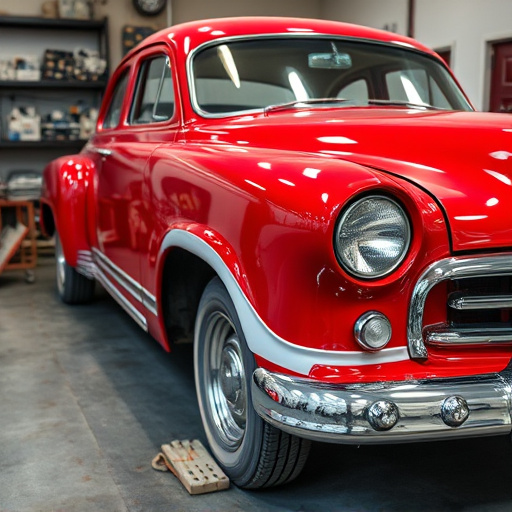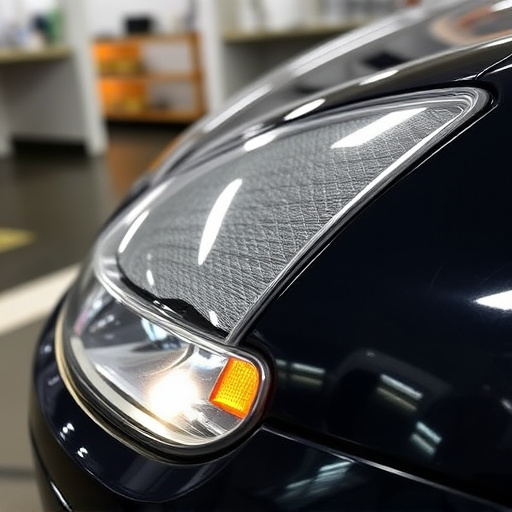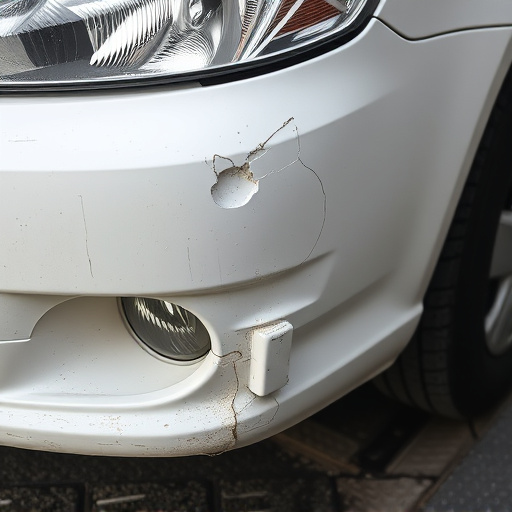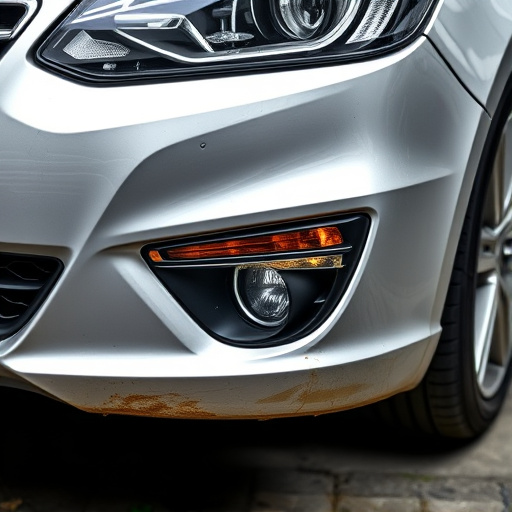The traditional manual process of generating collision repair quotes is time-consuming, error-prone, and relies heavily on human expertise. Artificial Intelligence (AI) offers a game-changing solution by automating this process using machine learning algorithms. AI systems analyze historical data, understand complex vehicle structures, and accurately determine costs for various services, promising enhanced efficiency, reduced errors, and improved customer satisfaction with quick, reliable estimates. However, challenges such as the need for extensive training data and algorithmic bias must be addressed to fully realize AI's potential in revolutionizing collision repair quote generation and vehicle repair processes.
The future of AI in collision repair quote generation is promising, set to revolutionize an industry that has long relied on manual, time-consuming processes. Currently, collision repair shops depend on human assessment and outdated systems for generating quotes, leading to inefficiencies and potential errors. This article explores how artificial intelligence (AI) is transforming collision repair quote generation, highlighting its benefits and challenges while charting the road ahead for this game-changing technology in the industry.
- The Current State of Collision Repair Quote Generation
- How AI is Transforming the Process
- Benefits and Challenges: The Road Ahead for AI in Collision Repair Quotes
The Current State of Collision Repair Quote Generation

The current process of generating collision repair quotes is a manual, time-consuming task that involves extensive documentation and calculation. Traditionally, estimators at auto collision centers have relied on experience, measurement tools, and intricate knowledge of vehicle parts to provide accurate estimates for repairs, ranging from simple dents and scratches to complex frame straightening and vehicle restoration. This process often requires multiple steps, including inspecting the damage, researching part costs, applying labor rates, and factoring in overhead expenses.
While manual quote generation has served the industry well, it can be slow and prone to errors. With the advancements in artificial intelligence (AI), there’s an exciting opportunity to streamline this process. AI-powered systems are increasingly being developed to automate collision repair quotes by analyzing historical data, understanding complex vehicle structures, and quickly calculating costs for various services, from painting and body work to structural repairs. These tools promise to enhance efficiency, reduce human error, and potentially transform the way auto collision centers operate, making them more competitive and responsive in a rapidly evolving market.
How AI is Transforming the Process
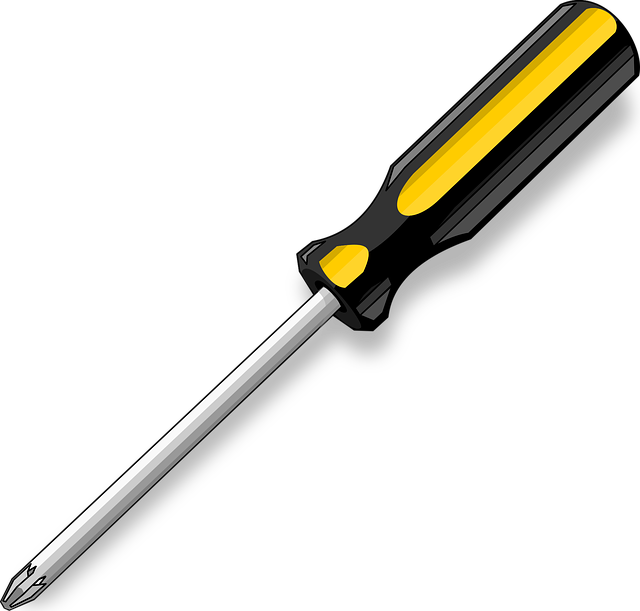
Artificial Intelligence (AI) is revolutionizing the landscape of collision repair, particularly when it comes to generating accurate and efficient collision repair quotes. This transformative technology offers a new level of precision and speed in assessing damage, calculating costs, and providing customers with transparent estimates. By leveraging machine learning algorithms, AI systems can analyze vast datasets from various sources, including images, historical repair records, and material costs.
The process is streamlined as AI-powered tools can automatically detect and categorize damages, such as dents, scratches, and frame misalignments (including auto dent repair and frame straightening), with remarkable accuracy. This not only reduces the time spent on manual inspections but also minimizes errors. Moreover, AI algorithms can factor in specific shop rates, equipment availability, and even environmental conditions to generate personalized quotes, ensuring a more accurate reflection of the work required at a collision repair shop.
Benefits and Challenges: The Road Ahead for AI in Collision Repair Quotes

The integration of AI into collision repair quote generation presents a promising future for the automotive industry. One of the primary benefits is its potential to streamline and optimize the entire process, from initial assessment to final billing. AI algorithms can analyze damage reports, compare historical data on parts and labor costs, and provide accurate quotes in a fraction of the time it takes human experts. This efficiency not only reduces administrative burdens but also enhances customer satisfaction by offering swift and reliable estimates.
However, challenges remain. Ensuring the accuracy and reliability of AI systems requires extensive training data, which can be costly to acquire and maintain. Additionally, there’s a risk of bias in algorithms if the training data reflects existing industry inequalities or deficiencies in auto body services. As AI advances, addressing these challenges will be crucial to unlocking its full potential in revolutionizing collision repair quotes and, by extension, vehicle repair processes overall.
The future of collision repair quote generation looks promising with AI technology leading the way. By automating repetitive tasks, enhancing accuracy, and providing faster turnaround times, AI has the potential to revolutionize the industry. As we navigate this evolving landscape, addressing data privacy concerns and ensuring fair practices will be crucial. Ultimately, embracing AI advancements could bring about a more efficient, transparent, and beneficial collision repair process for both businesses and customers alike, reshaping the way quotes are generated in this dynamic sector.
